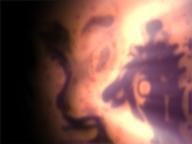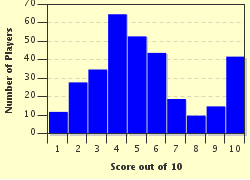Quiz Answer Key and Fun Facts
1. As the title of this quiz implies, D. Scott Rogo and Raymond Bayless collected several avowedly true stores of "Phone Calls from the Dead" for their 1979 book of the same name. Which of the following did the authors NOT cite as convincing evidence that these phone calls were paranormal phenomena?
2. One intriguing case Rogo and Bayless present is that of a couple who received a call from an ailing friend asking for help - the voice on the phone asked the wife to have her husband call as soon as he came in. Hours later, the couple found that their friend had died at the very time the call was received - after lying in a deep coma! What term do paranormal researchers commonly give ghost accounts like this?
3. Perhaps the most notable caller from the choir invisible that Rogo and Bayless document was the son of a great United States Civil War admiral; the caller had written the definitive biography of his pater familias and had an admirable naval career in his own right. What immortal commander's scion dispatched this defiant cry against mortality?
4. Most documented phone calls from the dead are made with a distinct purpose - a crucial message is delivered that the dead person would have been obligated to convey.
5. In analyzing these cases, Rogo and Bayless categorize calls from the dead into two types: calls that are brief or interrupted (Type 1) and longer calls where there is meaningful interaction (Type 2). The type of call tends to depend on how long the caller has been dead. What is the nature of this correlation?
6. Theorizing about the nature of phone calls from the dead, primary author Rogo eventually concludes that the calls do come from surviving essences of the departed, which he terms "Theta-agents". He does give due consideration to other theories, though. Which of these does he not seriously consider?
7. In their final chapter, Rogo and Bayless include critiques by several professional parapsychologists. Which criticism of the book do these referees NOT offer?
8. In the wake of Rogo and Bayless' "Phone Calls from the Dead", the floodgates for ghostly phone calls seem to have been thrown open; it is one of the most reported types of life-after-death phenomena reported since 1980, and several books have been written on the subject.
9. Psychical research on post-mortem telephony did make its mark in the literary world. The 1987 science fiction novel, "Dirk Gently's Holistic Detective Agency", features ghostly character Gordon Way, a prototypical car phone addict who cannot go into the next world without leaving one last message on his secretary's answering machine. What revered author penned this iconoclastic "thumping good detective-ghost-horror-whodunnit-time-travel-romantic-musical-comedy-epic"?
10. Finally, perhaps the most well-known case of a phone call from beyond the mortal pale comes from 21st-century television. In this venerable series, a struggling actor seemingly fires his manager over the phone, finds out later that she has died, then receives a call from her saying that he did the right thing. What fixture of American popular culture features this interaction between Joey and the great unknown?
Source: Author
stuthehistoryguy
This quiz was reviewed by FunTrivia editor
Nannanut before going online.
Any errors found in FunTrivia content are routinely corrected through our feedback system.

